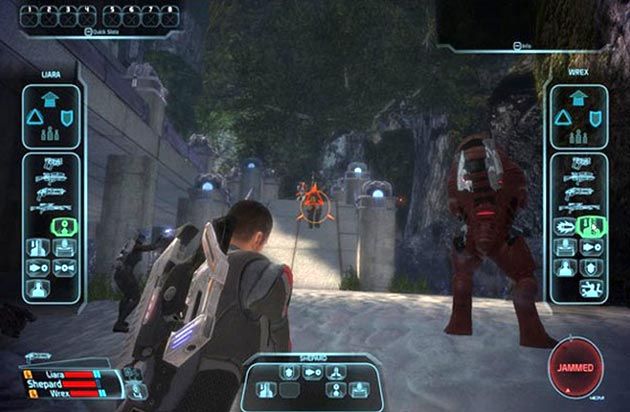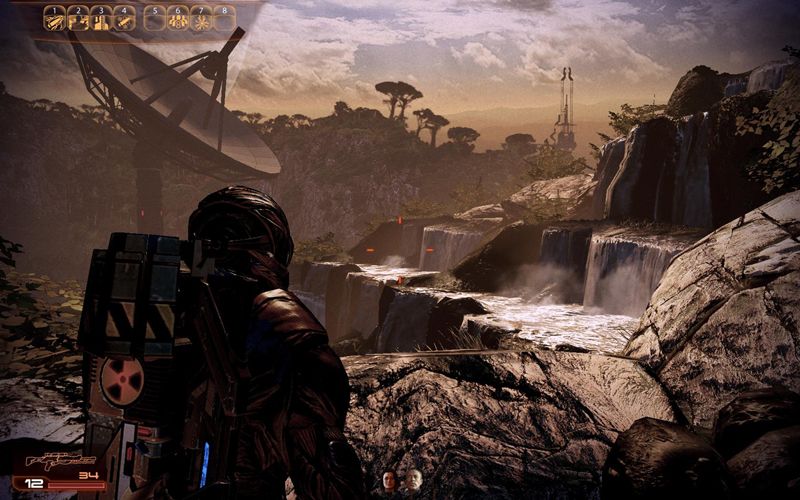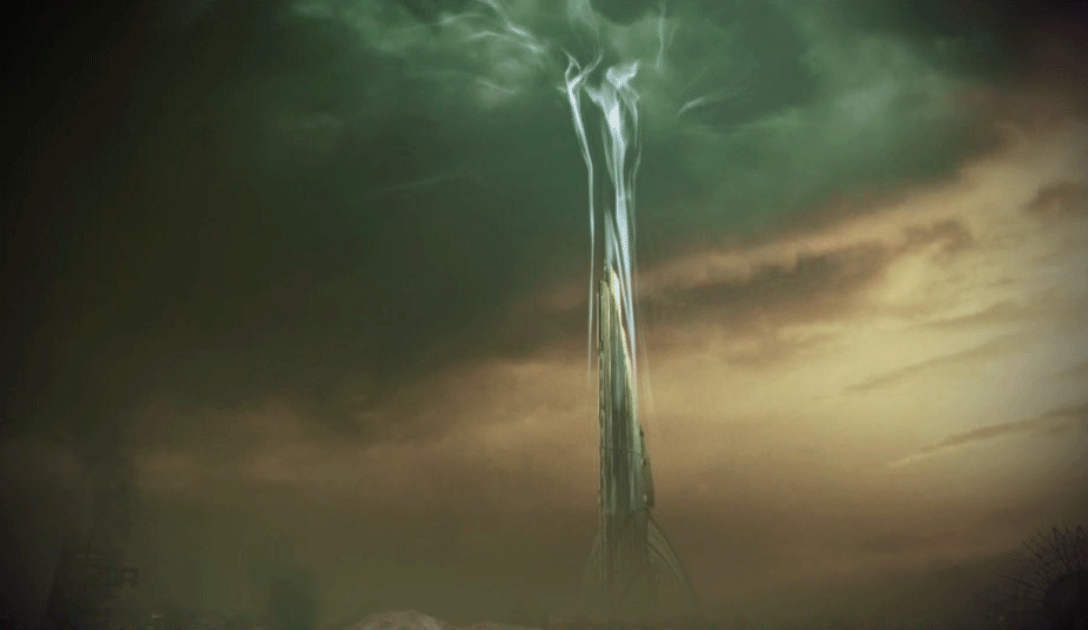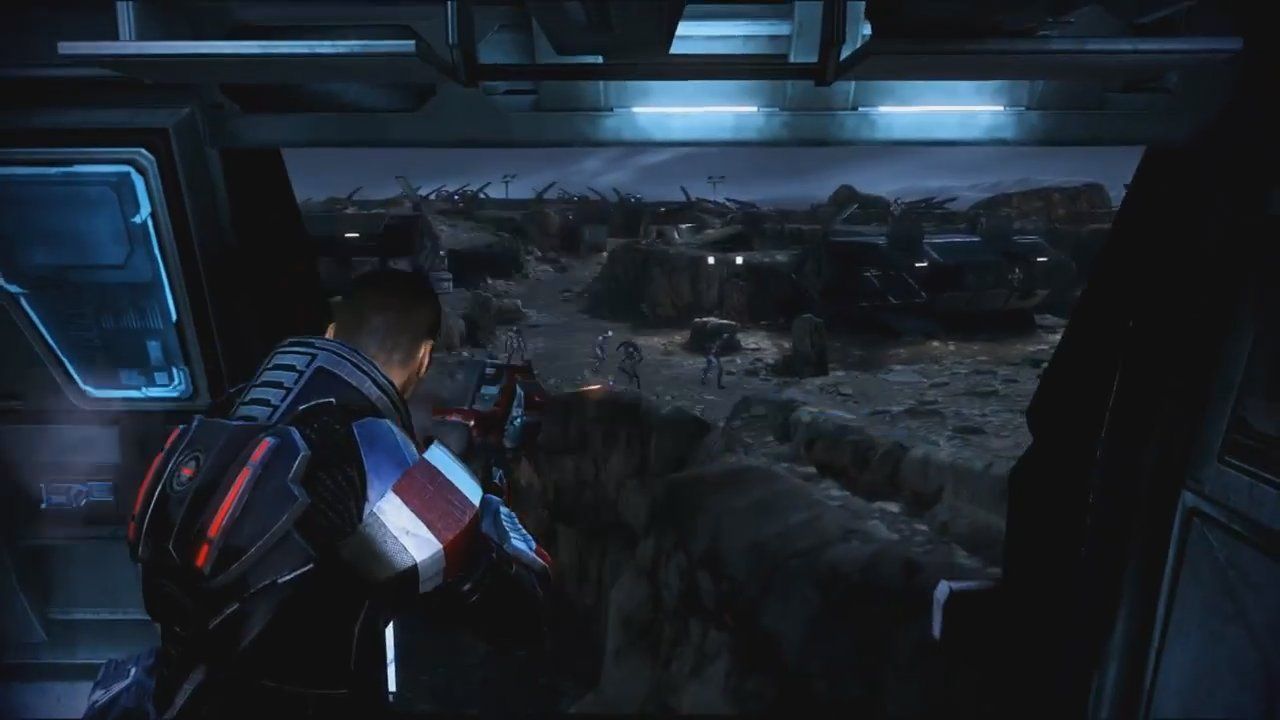A ‘Mass Effect’ trilogy retrospective

Spoilers for the ‘Mass Effect’ series follow.
My Commander Shepard was dashing, imposing, bold, and morally righteous, and now he is dead. I leaned back in my chair during the end credits of Mass Effect 3 , after having finally seen the constantly berated ending to BioWare’s blockbuster science-fiction trilogy. I wasn’t disappointed — perhaps I’d become desensitized to disappointment by the sheer volume of hatred I’d previously heard directed at the series’ conclusion. The game’s ending was not pristine. It was serviceable, but the conclusion wasn’t what I was thinking about; I was remembering the hours I’d spent getting there.
The Mass Effect series’ M ratings coupled with my young age prevented me from getting my hands on the games upon their initial releases. Recently, the wonders of PC gaming enabled me to pick up the trilogy package for a measly $10, and for that price, I couldn’t resist seeing what all the fuss was about.
The first game in the series appeared antiquated in many respects, and for good reason. Much has changed in the industry since the first title released in 2007, not long after the dawn of the eighth console generation. Its stiff third-person movement and weightless shooter mechanics left me wanting. My choice to play as an Infiltrator limited my usage of the game’s tantalizing biotic abilities — a choice that I’d go on to regret. Thankfully, I managed to find some enjoyment in the pause-heavy combat, in swapping between abilities, and in commanding squadmates to use their powers.

But what really drew me in to the first Mass Effect was the story. Seeing my Shepard in cinematic cutscenes, directing his conversational tendencies, and making the occasional important decision made Mass Effect an enjoyable experience despite its age. The tale of Shepard’s struggle against rogue Spectre agent Saren is an enjoyable science-fiction yarn with an intriguing layer of larger series implications hidden just beneath the surface. Still, I’d be lying if I said that what drove me to complete the game was anything other than the light at the end of the tunnel that was Mass Effect 2 .
When I booted up the sequel, I was immediately blown away by the advancements made in the gameplay. Suddenly, Mass Effect felt like a proper third-person shooter. Its dropping of the first title’s in-depth RPG elements didn’t bother my action-gaming sensibilities. Neither did its decision to abandon the Mako rides across barren, planetary landscapes. Sure, Mass Effect 2 felt like a more confined experience, but the focused scope of the sequel had the added effect of vast improvements to BioWare’s attention to detail. I’ll take the linear, beautiful vistas of Mass Effect 2 over the open-world, texture-repeated locales of the first title any day.

I had fun playing the sequel, not just watching the cutscenes, engaging in dialogue, or watching the story unfold. That’s not to say that Mass Effect 2 ‘s story wasn’t strong. Though the Collector conflict may have turned out to be relatively inconsequential, I yielded enjoyment from following the pursuits of the Illusive Man. I wondered as to his motivations, and was constantly trying to decide whether or not I was truly “on his side.” The Illusive Man is a fascinating character in a game that, in retrospect, is lacking in fascinating characters.
Sure, most of Shepard’s potential crew-mates are interesting at first glance, but upon my completion of their character-specific side quests, they each quickly exited the spotlight, never again to be of any narrative significance until their potential deaths in the game’s highly revered Suicide Mission. Perhaps that’s a pitfall more of the video game medium than it is a criticism of BioWare’s abilities as a developer. The very nature of most video games roots players in the shoes of a protagonist to engage in action — and sizable development of a large stable of characters does not lend itself well to such a model.
The issue I have with Mass Effect 2 ‘s handling of character is that BioWare seems to believe it did more character development than it actually did. The game treats the Suicide Mission as a tragic quest. Dramatic music flares, and Shepard stands speechless when each of his comrades falls. The death of Miranda Lawson at the tail-end of the mission seemed meant to act as a sort of emotional high-note judging by its placement at the climax of the game.

And yet, I felt nothing when my teammates perished, except for disappointment. I was interested to see how Thane’s character would develop, but he inhabited my crew for a measly few hours before his untimely demise. Beyond the green Drell, I struggle to recall which of my characters lost their lives during the finale, which speaks to how little the sequence affected me.
In fact, though I enjoyed my time with the Mass Effect trilogy, the first two series entries failed to elicit much of an emotional reaction from me. As I moved on to Mass Effect 3 , the epic climax of the trilogy, that changed. In general, the galaxy-spanning quest of the third title had me more engaged with the saga’s story than I’d ever been before. The goal of uniting the galactic inhabitants to halt the reaper of assault was more immediately enthralling than investigations into Saren’s activities or the recruitment of followers to take on the Collectors.
More specifically, two major choices in Mass Effect 3 had my stomach in a knot and my moral compass spinning. The first was my decision as to whether to cure the genophage virus. I ultimately decided to do so, though not without serious hesitation.
The second and more affecting decision came when I was forced to pick between saving the Geth or the Quarians. After sitting in front of the conversation wheel for what seemed like hours, I ultimately settled on the former — and Tali’s following suicide coupled with the dramatic destruction of the Quarian fleet left me with an immense feeling of regret and a shaken emotional state. I had to take a week-long break from the game just to recover from the implications of my choice. This instance was, hands down, the most severely that a single video game decision has ever affected me.

It’s also a prime example of BioWare’s strength as a developer. The studio excels at telling big stories, and falters when it tries to get specific. Time and again, the Mass Effect series failed to endear its characters to me, but the tremendous world-building and stunningly-crafted lore that the studio created meant that I was still able to experience a moment like the one described above.
As I sat in my chair after finishing the third game, I remembered the good and the bad. I recalled the hilarious Mako flips of Mass Effect , the brilliant mechanical refinements of Mass Effect 2 , and the empowering piloting of Cerberus robots in Mass Effect 3 . I remembered the narrative highs and lows of the series, the character failings and the wrenching choices and consequences. The trilogy is undeniably flawed, but the experience is unforgettable. At the end of the day, I can’t help but step back and admire BioWare’s accomplishment.
Got any ‘Mass Effect’ memories of your own? Share them in the comments section.
* This story was originally published as a post from the blog "The Tech Deck." Read all stories from this blog